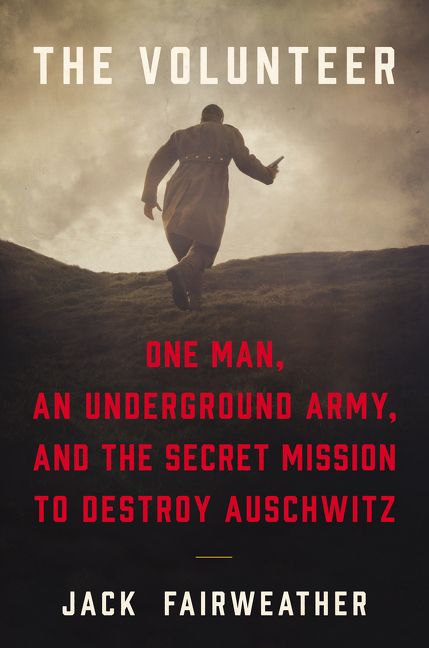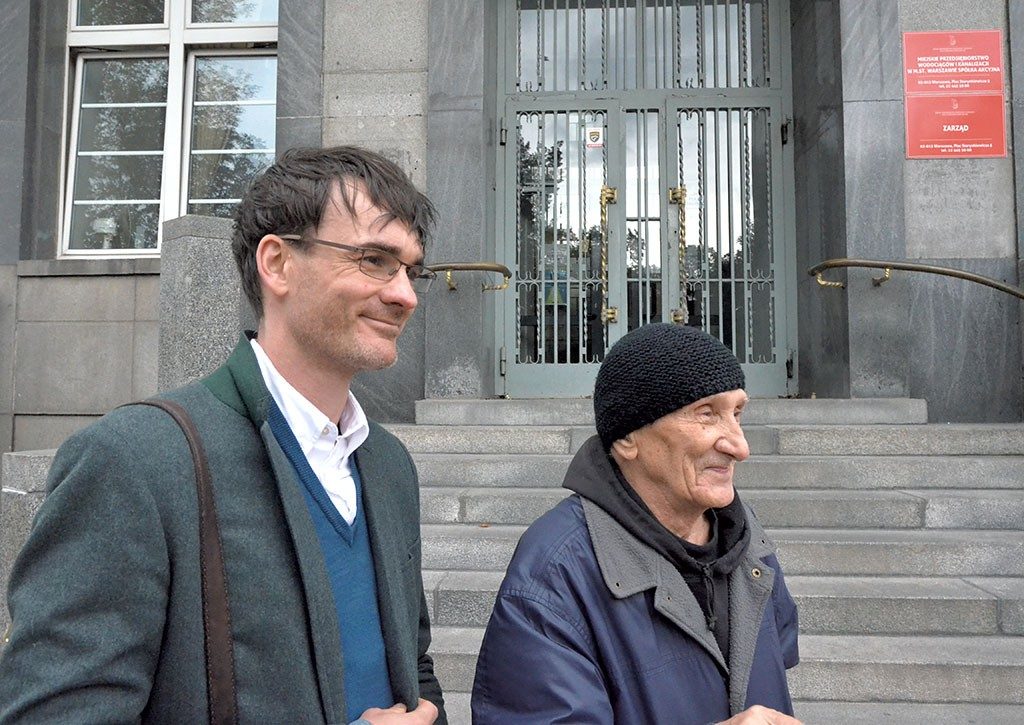The New York Jewish Travel Guide had the privilege of interviewing Mr. Jack Fairweather regarding his most recent book, titled “The Volunteer.” The following interview has been edited for clarity:
NYJTG: We appreciate your time, Mr. Fairweather. To begin, could you provide a brief introduction of yourself and offer some insights into your previous literary endeavors?
Jack Fairweather: Certainly. I come from a background in war reporting, which has led me to cover conflicts in places like Iraq and Afghanistan. I was embedded as a journalist with British troops during the Iraq invasion and the subsequent occupation of Basra. I spent a significant portion of my life in Iraq, serving as the bureau chief for the Telegraph. Following that, I reported on the war in Afghanistan for the Washington Post. During my time covering these conflicts, I began to ponder a crucial question: What were the underlying causes of these wars?
This question served as the catalyst for me to author two books, both aimed at delving into the origins of these wars. I sought to uncover how these conflicts unfolded and why they occurred. To do this, I conducted interviews with key figures, including President Bush’s inner circle, his military leaders, diplomats, and Iraqi and Afghan insurgents. My approach to Picki’s story in “The Volunteer” follows a similar investigative path, focusing on the significant question he confronted.
NYJTG: Could you share with us how you stumbled upon the remarkable story of this Polish cavalryman and what motivated you to write about him? What were your goals in bringing his story to light?
Jack Fairweather: I first learned about Witold Pilecki through a fellow war reporter who had visited Auschwitz and encountered a small exhibit about the resistance within the camp. The idea that anyone could defy the Nazis in such a place left me profoundly astonished; it challenged my preconceptions about the camp entirely. As I delved deeper into Pilecki’s narrative, I discovered another astonishing aspect: there was a remarkable dearth of information about him. This void in his story was large since, after World War II, he had continued to fight, this time against the communists. Unfortunately, he was captured and executed, and all records of his wartime heroics were systematically erased.
Recognizing this historical injustice, I felt compelled to rectify it. My objective in writing about Witold Pilecki was to shed light on a heroic figure who had been unjustly obscured from history, all while exploring the incredible courage it took to oppose the Nazis in one of the darkest chapters of human history.

NYJTG: Can you elaborate on your research process and the time it took to complete it?
Jack Fairweather: The research for this project was an extensive endeavor that spanned a little over three years, involving a team of four individuals, including myself. We had two researchers who dedicated their full-time efforts to combing through archives at the Auschwitz-Birkenau State Museum in Warsaw, with another researcher based in Washington, D.C. Additionally, tracking down critical information about the secret message that Pilecki smuggled out of the camp was a challenging task, as these reports were dispersed across archives worldwide. These records could be found in locations such as Warsaw, London, Stanford, New York, Switzerland, and Belarus.
NYJTG: What motivated Pilecki to volunteer for such a perilous mission at Auschwitz, and how would you assess his overall impact on saving the lives of camp prisoners?
Jack Fairweather: Pilecki’s choice to volunteer was deeply rooted in his unwavering patriotism and, to some degree, his Catholic faith, despite not openly discussing the religious dimension of his motivations.
He felt a compelling duty to make a difference in the lives of those around him. The Nazis aimed to dismantle society and strip individuals of their dignity and self-worth within the confines of Auschwitz. Pilecki recognized that by sharing the secret of his mission, he could help fellow prisoners see that something greater than themselves could endure even in such an abhorrent place. This spirit of hope that he instilled played a pivotal role in keeping many people alive.
NYJTG: Could you provide some insight into the statement Pilecki made in his report to the Allied commander, where he urged them to bomb Auschwitz, even if it meant bombing the camp with him inside?
Jack Fairweather: Pilecki’s call for the bombing of Auschwitz dates to October 1940, which was his first secret message to the Allies. This request is quite astonishing to contemplate. At that point, the Nazis had not fully outlined their plans for the final solution, but Pilecki recognized that the treatment of prisoners within the camp was already so atrocious that it demanded intervention.
Subsequently, Pilecki organized a network of couriers to clandestinely transmit messages from the camp. Among these messages, the most crucial was the report he sent from Auschwitz in the summer of 1942, coinciding with the arrival of the first Jewish families for extermination. He orchestrated a daring escape for one of his comrades and three others by stealing SS uniforms and commandeering Commandant Hoss’s car to drive to the main gate. Remarkably, they succeeded in escaping, and this information reached the outside world. Tragically, a part of Pilecki’s story is the lack of response from the outside world to these distressing reports.

Jack Fairweather (left) with Bohdan Walasek, 89, who fought alongside Witold Pilecki
NYJTG: Returning to a previous question, would you say that Pilecki’s actions played a role in enabling numerous Jewish families to escape from the camp? Do you believe he should be considered for recognition as a “Righteous Among the Nations” by Yad Vashem in Israel?
Jack Fairweather: Pilecki’s actions undoubtedly had a significant impact within the camp, as he instilled the belief among prisoners that resistance was possible, preventing many from succumbing to despair. In this way, he saved the lives of hundreds of individuals.
Furthermore, by providing Allied commanders with information and the opportunity to take action, he potentially could have saved thousands more lives had they heeded his call to attack the camp. The exact number of lives that could have been saved remains an unanswerable question, serving as a poignant reminder of the importance of paying attention to the atrocities occurring around us.
NYJTG: Building on that, are there any documented survivor testimonials or accounts of Pilecki’s actions?
Jack Fairweather: Yes, after his escape from the camp, Pilecki displayed incredible moral complexity. He risked his life to save a Jewish family in Warsaw from a Gestapo agent who happened to be Jewish himself. This illustrates the profound ethical dilemmas of the time and highlights Pilecki’s exceptional commitment to his principles of right and wrong.
NYJTG: What do you think was Pilecki’s most significant disappointment? Was it primarily the world’s delayed response, or did he have other sources of disappointment?
Jack Fairweather: Pilecki carried the torment of Auschwitz with him long after escaping the camp, and it never truly left him. He seemed to grapple with the survivor’s guilt and a deep sense of responsibility. He constantly wrote about Auschwitz, attempting to understand his experiences and share them with others.
Toward the end of his life, he penned a poignant reflection that I stumbled upon in an archive. He wrote, “I’ve sat in the camp with dozens of friends who knew they were going to be executed the next day. They all had the same regrets, which were that they hadn’t given enough of themselves to those around them.” I believe Pilecki felt that he hadn’t done enough, although I hope this book helps demonstrate that he accomplished far more than we could ever imagine.
NYJTG: How do you plan to continue contributing to Pilecki’s legacy? Are you considering the production of a documentary, play, or movie to share his story?
Jack Fairweather: I would love for this incredible story to reach as wide an audience as possible. I’ve been profoundly inspired by Pilecki’s courage, bravery, exceptional creativity, and resourcefulness in resisting the Nazis within the camp.
NYJTG: Thank you for your time, and I’m grateful for the opportunity to share this information. I hope it resonates with our readers as much as it has with me.
Meyer Harroch- New York Jewish Travel Guide



You must be logged in to post a comment Login